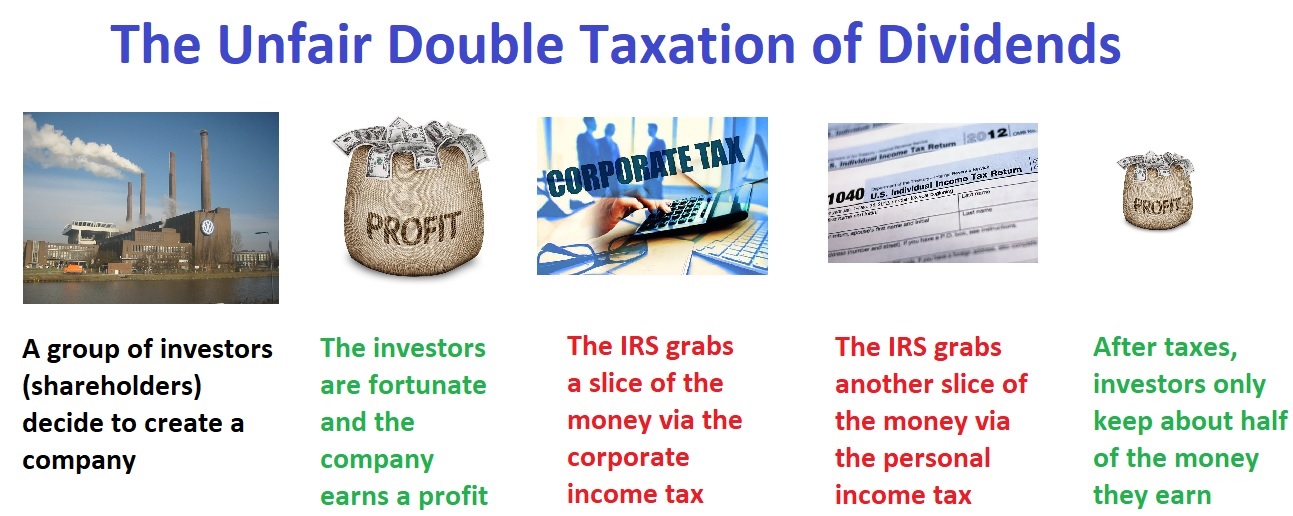Assuming the goal is more prosperity, lawmakers who work on tax issues should be guided by the “Holy Trinity” of good policy.
- Low marginal tax rates on productive activity such as work and entrepreneurship.
- No tax bias (i.e., extra layers of tax) that penalizes saving and investment.
- No complicating preferences and loopholes that encourage inefficient economic choices.
Today, with these three principles as our guide, we’re going to discuss a major problem in how dividends are taxed in the United States.
Simply stated, there’s an unfair and counterproductive double tax. All you really need to know is that if a corporation earns a profit, the corporate income tax takes a chunk of the money. But that money then gets taxed again as dividend income when distributed to shareholders (the people who own the company).
So why is this a bad thing?
From an economic perspective…
View original post 509 more words


 PayPal
PayPal Boudica BPI
Boudica BPI Boudica BPI Sites
Boudica BPI Sites Boudica.us videos
Boudica.us videos Boudica.us webmail
Boudica.us webmail boudicabpi.boudica.us
boudicabpi.boudica.us boudicaus.wordpress.com
boudicaus.wordpress.com Queen Boudica blog
Queen Boudica blog tumblr
tumblr Adina Kutnicki
Adina Kutnicki Crockett Lives
Crockett Lives Cry and Howl award
Cry and Howl award cryandhowl
cryandhowl Debbie Schlussel.com
Debbie Schlussel.com Nebraska Energy Observer
Nebraska Energy Observer New Zeal
New Zeal Oathkeepers
Oathkeepers Puma By Design
Puma By Design Swiss Defence League
Swiss Defence League The Mad jewess
The Mad jewess the religion of peace
the religion of peace theodores world
theodores world warsclerotic
warsclerotic Queen Boudica
Queen Boudica Boudica
Boudica Ann Coulter
Ann Coulter Michelle Malkin
Michelle Malkin If you don't like my opinions
If you don't like my opinions feedjit
feedjit The myths of Muhammad
The myths of Muhammad